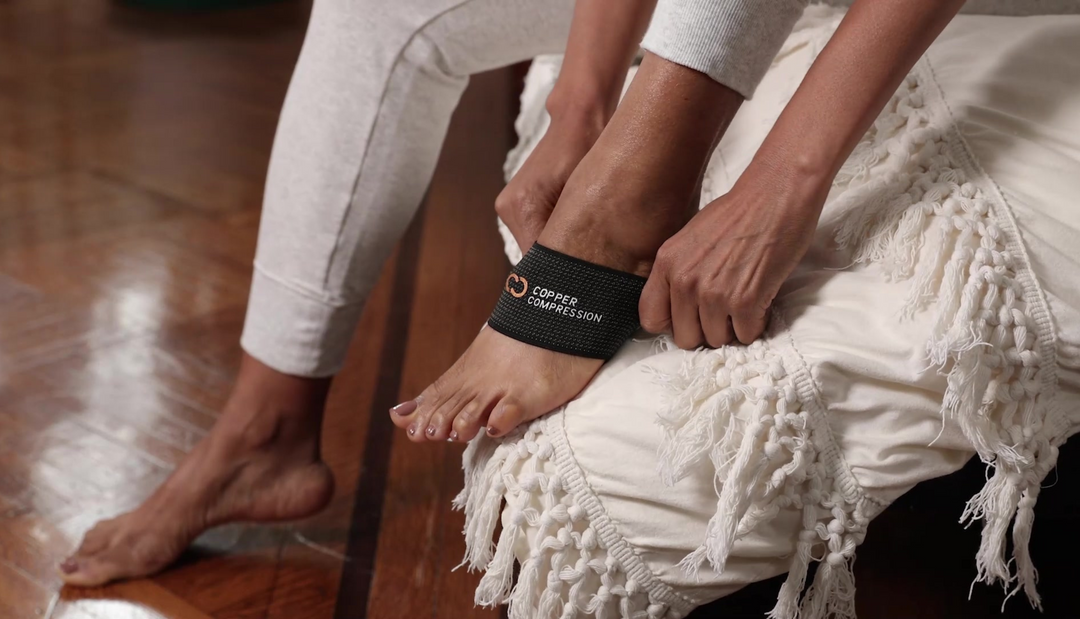Why Do Nurses Wear Compression Socks?
Nurses are the unsung heroes who work day in and day out to help their patients feel comfortable. Especially during the pandemic, we all witnessed healthcare professionals on the front lines of an infectious disease. It’s no wonder why nurses love to wear compression socks...
There are a lot of reasons nurses wear compression socks. They can help with circulation, reduce swelling, and even prevent blood clots. But one of the most important reasons that are often overlooked? They keep nurses' feet warm and comfortable! When you're working long hours on your feet, you need all the warmth and comfort you can get from leg pain and blisters.
Standing all day can be tough on the body, and one of the most common problems people experience while being on their feet all day is swelling, especially in their feet and ankles. When standing for extended periods of time, the force of gravity pulls down on the body, causing fluid to accumulate in the lower extremities.
Comfort is hard to come by as a nurse. Nurses are constantly on their feet, shuffling from ward to ward and room to room. So next time you see a nurse wearing compression socks, go easy on them — they're just trying to stay comfortable like the rest of us!
To learn more about why nurses wear compression socks and how compression socks for nurses can help decrease fluid build-up, read ahead.
Compression Socks Decrease Leg Lethargy
Compression socks are a great way to help keep your legs feeling energized throughout the day. When worn regularly, they can help to reduce swelling in the feet and ankles, improve blood flow circulation, and even reduce the risk of blood clots. But one of the lesser-known benefits of compression socks is their ability to decrease lower leg lethargy.
This is because compression socks provide graduated compression along the entire length of the sock, providing support that helps promote better circulation in the legs. This helps reduce swelling and fatigue and helps to prevent blood pooling.
Nurses are susceptible to leg and foot pain due to overuse. Their body weight is entirely absorbed by their feet, which builds up intense pressure that they aren't strong enough to carry for extended periods of time. If someone is obese, for example, it might make it even more difficult for them to walk because their feet have to carry all of their body weight.
Compression Socks Improve Circulation
Nurses are no strangers to long, busy shifts, and while they might not always admit it, long bouts of standing can take their toll. To help nurses stay healthy and keep active on the job, many have started wearing compression socks while they're on duty.
Compression socks work in strategic areas of the leg to increase circulation — a benefit for people who spend a lot of time on their feet! So if you're a nurse looking for a way to stay comfortable on those long shifts ahead, trust the experts — get yourself a good pair of compression socks!
Compression Socks Can Help Reduce Swelling
Not only are compression socks comfortable, but they can actually reduce the risk of medical issues like deep vein thrombosis (DVT) and spider veins caused by standing or sitting for long periods. They can also help decrease swelling in the feet and legs by increasing blood circulation, which is especially helpful when working long periods of time like 12-hour shifts!
“People who are almost constantly on their feet, like nurses, benefit from compression socks and stockings because they help keep blood circulating and return lymph to where it belongs. When you’re using your legs a lot (or, conversely, sitting still for a long time, like on a plane), the lower legs can sometimes swell and become vulnerable to clots. Sliding on a pair of compression tights, stockings, or socks can help ensure more efficient, healthy circulation and function,” according to Dr. Jacob Hascalovici MD, PhD the Clearing’s Chief Medical Officer.
Compression socks may just be the answer to ensuring that nurses have healthier and more comfortable days on the job. Plus, they can be stylish and show off your personality when you're wearing uniform scrubs.

How long should a nurse wear compression socks?
The amount of time a nurse should wear compression socks depends on the individual, as well as their level of activity and comfort. Therefore, nurses can wear them throughout their shift, but will probably want to take them off as soon as they get home to air out their feet. Rub on some lotion and give your feet a breather overnight!
Full-time nurses typically work five 8-hour shifts, four 10-hour shifts, or three 12-hour shifts per week. They typically only have a half-hour break for lunch. If you're a nurse who's reading this, then you know how long the work days are for a nurse.
Are compression socks good for 12-hour shifts?
Compression socks are a great solution for nurses who work 12-hour shifts and need to be comfortable throughout their long days. Compression socks help improve circulation, reduce swelling and fluid build-up, decrease leg fatigue, and lessen the risk of injuries due to prolonged standing. These are all benefits that can greatly help nurses with tired, swollen feet.
Technically, compression socks can be worn all day and aren't harmful to wear for more than 12 hours, but your feet can start to feel constrained just like they would with any pair of socks.
What level of compression socks should nurses wear?
It really depends on how long a nurse will be on their shift. A higher level of compression may be necessary for better support and circulation, while a lower level may be sufficient for those who don't need as much compression. Typically, compression socks come in three levels: mild (8-15 mmHg), moderate (15-20mmHg), and firm/tight (20-30mmHg).
Mild compression is usually recommended for everyday use or long periods of sitting or standing, while a moderate to firm level is typically recommended for activities that require more strenuous movements such as running or walking.
By investing in quality products that offer adequate support, nurses can avoid long-term complications associated with overuse while keeping their legs feeling energized throughout their shifts. So, if you’re still asking yourself why nurses should wear compression socks, we hope you’ve found your answer!








